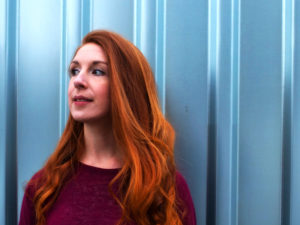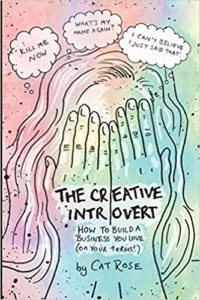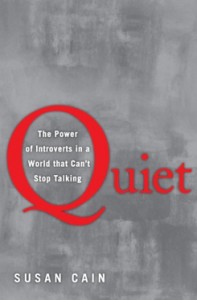Every week, there are news reports on how AI will impact jobs, but what about the impact of AI on indie authors?
Can we surf the change instead of being drowned by it? Could it make our lives better as creative entrepreneurs?

I recently did a mega-solo podcast on 9 Ways that Artificial Intelligence Will Disrupt Authors and the Publishing Industry, and in this interview, Orna Ross interviews me about some of the specifics that might impact indie authors, in particular.
We discuss:
- What is AI anyway? The difference between general AI and specific AI
- AI and ramifications for copyright. If an AI creates a book, do they have a copyright for it? Currently, only humans can have copyright but there is a challenge around granting an AI a patent [BBC, 1 August 2019]
- The movement #AIforgood
- AI and creativity. See the interview I did with Marcus du Sautoy on AI and Creativity
- GPT2 and natural language generation.
- AI translation. I am currently using www.deepl.com to generate first drafts of my non-fiction for publishing in German later this year. Why translation jobs will be about to change — and expand.
- AI audiobook narration. Check out the samples at www.deepzen.io who are developing human-like speech. The potential for licensing and new audio products in a world where you can do multiple voices for one book.
- Voice technologies and the impact of #voicefirst. See my interview with Bradley Metrock on Voice Technologies for Authors, and also with Miral Sattar on Voice Search.
- Recommended resources: Sleepwalkers Podcast, AI Superpowers by Kai-Fu Lee, The Big Nine by Amy Webb, Homo Deus by Yuval Noah Harari, Talk to Me: How Voice Computing will Transform the Way We Live, Work and Think by James Vlahos, WIRED magazine and blog for all the amazing things being created, and Singularity Hub for AI news.
The interview is on the Alliance of Independent Authors AskAlli Podcast feed. The interview starts after the introduction around 12:25 mins. Links and notes here and you can subscribe below.



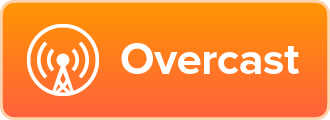
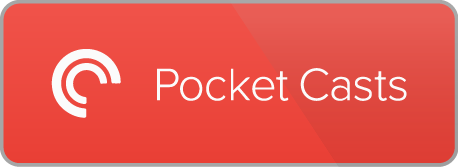

Click here to watch the interview on YouTube.
You can also listen on Soundcloud here:
Transcript of the interview on Artificial Intelligence and the Indie Author
Orna: Okay. But today we are going to talk about something that sounds maybe mysterious, sounds maybe scary for a lot of authors. But that you have been investing a lot of time and attention and you’re hugely interested in and you’re actually making work for you. And that is artificial intelligence. And our theme for today is really how can indie authors harness the power of AI? Where are we with it? What’s it doing? What can it do for us?
And on all things AI, you are our guru so I’m going to be quizzing you, but first, before we start on what it can do for us, what is it? Explain to the people, what are we talking about when we’re talking about artificial intelligence?
Joanna: I think as writers and readers, we have read all the scary things and we probably watched all the films. And so the biggest thing that people can get confused about is artificial general AI, which is “Can there be an Orna Ross bot?” Which is a robot that thinks like you, that does everything you do and general intelligence is completely different to what we’ve got right now. And again, it’s like we always say about being an indie author. The language just has not really evolved enough in this space.
So what we are really talking about is the very niche intelligence. So it’s very, I want people to think very, very, very, very, very, very specific. So it’s a bit like you would have apps on your phone that do different things. That’s really what we’re talking about. So, essentially it’s software that can analyze data and perform an action.
Joanna: So, and of course it might not be software, it might be software that goes in hardware like a robot at some point. But one of the most common things that all authors are going to know about is and readers is if you go on Amazon and you buy a book, it’s going to recommend some other books. Now, there is not a human sitting there and Amazon HQ going, “Oh, Orna bought this book. I think she’d like that book” and like writing it back to you. We all know that that is ridiculous. Like it makes you laugh because we know that’s not true.
Or if you, you know, go surfing on the Internet and then you log into Facebook and you get served an ad. Like I was looking at trips on the Grand Canyon and I logged into Facebook and there’s an ad for the company I was just at, that is part of artificial intelligence.
Joanna: So it’s basically a catch-all term that is covering everything from, you know, Amazon ads or Facebook ads through cancer diagnoses based on image recognition.
And there are some incredible breakthroughs around that area. Diagnoses that humans cannot reach that level of detail, or you know, some of the stuff around climate change. I’m actually a firm believer that technology will help us solve the biggest problems of humanity down to helping you with your algorithms around Facebook ads. So I want to and the point of this is also to look very positively about our future, but also as an awareness.
So for us this is an awareness of how things are going to change and are already changing and watch, you know, can we surf that change rather than be drowned by it. I guess that’s probably a good enough overview.
Orna: That’s an excellent overview. I mean obviously, our science fiction people and a lot of authors who are using AI as an actual plot function or a theme in their books are going to be very familiar and very comfortable with it. But I definitely know that in talking to authors that they are scared of the idea, first of all, because there are issues around copyright, aren’t there, there are issues around, you know, up to now, for the visible future certainly up to now you’ve had to be a human to have copyright and to own intellectual property. Well, there’s quite a movement isn’t there to actually say that AI should own copyright. Do you have any thoughts about that?
Joanna: Well, I think this is a really interesting area. As we’ve discussed before, ethics are not legalities. So we’ve talked about this with the ethical author.
There are plenty of things that are legal for us to do as authors, but quite a few things we think are not right ethically. And what’s really interesting is there’s a hashtag, #AIforgood. You can have a look at that movement. There are people like Amy Webb who’s written a book called The Big Nine.
There are lots of people who are trying to help shape the future of AI almost so that it doesn’t end up like some of the Internet right now. I think we can all agree, like, I would not have a business without the internet. We would not be having this conversation without the Internet. We all agree the Internet is incredible and has revolutionized our lives as creatives, as humans.
But we can also acknowledge that there’s a dark side and it’s going to be the same with AI. And I feel like the copyright thing is one of those areas where this is another reason it’s important for us to have our voices heard and to be involved and not to be scared about it because at the moment I write a book on Scrivener, no one is saying that Scrivener owns the copyright to the book I put out there. I format my book on Vellum. Vellum doesn’t own the formatted version of my book, although at some publishers they actually own the layout. Right?
Layout can be part of a copyright. A book cover is part of, you know, a publisher’s copyright or the image maker’s copyright. So the question is, well, if, as has already happened, an AI created Rembrandt was sold at Christie’s for, I don’t know, I think it was, it was a lot.
[It was $432,000 – Christie’s]
Orna: It was a lot of money.
Joanna: So, who gets that money? So the people who made the art own the AI, right? But what if I want to make a Rembrandt? Can I use their AI software to make a Rembrandt?
Or if you think about Forbes, for example, they use an AI to create a lot of first drafts for their articles. The Washington Post owned by Jeff Bezos also has an AI creating a lot of first draft journalism or financial journalism. A lot of that is done by AI now. Sports journalism is increasingly AI. [Forbes]
So, you know, you don’t want to have reporters at every tiny little league or small game. You just get the news in different ways. So the question is not just, well, what if an AI creates a whole book?
But, you know, what if I, okay, so I could do this right now. I could read in the whole of the Creative Penn, which over the last 10 years has millions and millions of words into what’s known currently as GPT2, it’s called natural language generation [OpenAI], generate some text based on what I have given it.
And so who owns the copyright to that?
Is it me or is it, what about all the people who’ve guest posted on my blog? What about you who’ve been on my podcast four times? Do you get any say in that? So this is where we are. We’re at this very interesting point. And of course, if you post something on Facebook, like, you know, they could take, take it down whenever they want. So if I use an AI to create a book and then they decide they changed their mind, does that disappear?
Joanna: So there are many, many questions that we have to think about, but why it is so important for us to talk about this is because things are already happening. These examples, I’m telling you, these are already happening.
The first screenplay has been written by an AI. The first film has been made from the screenplay written by an AI. The first novel in Japan made it into the shortlist for a literary award. Poetry is all day, every day by AI poet bots, some of which there’s a site you can, it will say “Poet or not?”
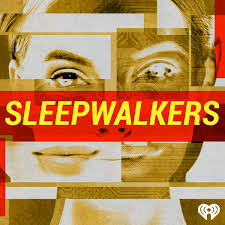
[Listen to the Sleepwalkers podcast for more of these examples, and also to my interview with Marcus du Sautoy on Creativity and AI.]
And you get to choose and like, half the time you can’t tell. Music, there’s been the first album. I mean, there are so many things that are already happening. So, yeah, I mean, you know, I could talk about this all day, but it’s very exciting. But where we are is we don’t know where it’s gonna go.
Orna: We can just look forward and see trends. And I suppose it’s important to say, for those who are listening, that there are two reasons why we’re kind of talking about this.
First of all, we want to demystify as much as we can, what’s going on. And for those people who may be a little bit kind of “Aaah!”, you know, avoiding it or resisting it or not wanting to go there because they think, “I don’t understand what it’s all about.” Just kind of a bit of information.
But also if we could talk a little bit, I think this is the most important part, impossible to say everything that can be used to do but what can, there are things that we as indie authors right now could do, which could actually potentially grow our author business. Can you talk a little bit about those?
Finishing Your Sentences
Joanna: Absolutely. Well, the thing is it’s already everywhere. So if you use Google, so Gmail’s really interesting at the moment. I don’t know if you’re using it, but the smart finishing your sentences, it is getting really good. [Smart Compose – The Guardian]
So and that is a text generation tool based on learning from your data. And that’s essentially a small part of what a GPT2 could do, which generates paragraphs or even whole books from some texts. [Check out TalkToTransformer.com to try out a tiny snippet]
But in terms of right now, many indie authors who’ve been paying attention to things like Amazon advertising, you can use auto-targeting within Amazon ads, and in fact, some, sometimes they can work really well. Like if you have a very, like your books, they probably wouldn’t work so well with because you have nonfiction, literary fiction, poetry, all under the same name. But like Joanna Penn books do pretty well with auto-targeting because they are a specific niche.
Joanna: So that’s one example where authors can already be using AI stuff, but essentially anything that is on Facebook, Google, Amazon, I mean everyone’s probably used an Uber or something like that on their phone. You know, all social media, so much of this is driven by AI.
And then of course in the wider world, you know, everything from insurance to, you know, getting around on the underground now, a lot of this technological travel stuff is driven by AI. So in terms of what you can start with, what I would say is right now it’s in what you’re doing every day and, but it’s early days in terms of how you can use it to grow your business. But in the next year, this is where things are getting more interesting. So translation, which and this is, I found this to be an incredibly emotional topic with people.
AI Translation
Joanna: So AI Translation has become incredibly good. So there are some very big, big names involved in translation, machine translation basically. And it’s all to do with the amount of data available obviously, but it was October, 2018 I think the first book was translated from English to Mandarin in 30 seconds with 95% accuracy [The New Publishing Standard].
And I’ve been using a service called deepl.com which is a German AI translation. You can upload your book and I have now done this with four books and it will translate your book, from English into German or many other languages in one minute. And it’s kind of like, there is a free level. So it’s worth trying to do. Have you tried it yet?
Orna: Not yet.
Joanna: No? Well, it’s very, very interesting. Now, I don’t read German, so of course, I translated it and went, “Oh, that’s interesting. Don’t know what to do about that.” So I sent it to a few people and the company is German, so they have a lot of data in German. I can’t really comment on any of the other languages.
But what happened to me this year is that 7% of my book sales income came from Germany, and that’s in English. So that to me implies that if I put books out in German, I might be able to sell some. So I am going through with these books.
So the AI is essentially the first draft and then I’m working with editors. And this is what you’re going to have to do, right? Like any book, you work with an editor to polish up that document. But this is an interesting thing with copyright as well because in Germany a translator can have the copyright on your translated book.
But because this is an AI translated editing job, actually the contract for the editor is quite different. So on first glance, you could say, “Oh, well this will put translators out of a job.” But think about what I’ve just done.
I’ve gone from using zero German translators to actually now working with three different people and paying them to clean up my books. So this could potentially be an explosion in a different type of work.
And that’s what I want people to think about AI, the media, as ever, is full of, “Oh, AI’s going to take your jobs, your job is going to disappear.” But what’s actually going to happen is your job is going to change. And we’re used to that because the job of an author is not the way it used to be and everything changes all the time. So that’s one example with translation and I’ll tell you what, it’s getting better and better all the time.
Joanna: And if you haven’t used even Google Translate recently, you know, you’re missing out because things are just, the translation thing is crazy. So that’s one thing.
Orna: I would like to pick up on what you’re saying there in terms of the translators and to me it’s very like audiobook narration, which was an absolute minority sport 10 years ago when audiobooks were essentially a subsidiary right that publisher is sold specifically to audiobook companies and the only people who generated audiobooks were well-known actors like Stephen Fry or whoever.
Then we got the audiobook explosion and now so many narrators making a good nine to five living. Actors who, you know, between jobs are doing an audio books and a whole load of people employed that wouldn’t have been employed otherwise. I think this is an absolute cert with translation. I think it is the breakthrough that translation has been waiting for.
At the moment, translations in the hands of literature societies who pay grants to translators to do months of work to translate a book, whereas the real creative work in that translation is actually the editing work that takes it from being, you know, pedantic sort of prose into something that is quite different, into the style of the author and so on. And I predict we’re going to see some amazing books for that reason and that translators are going to really be in demand and are going to become sort of creative entrepreneurs themselves.
I think that’s only a matter of time and it’s going to happen pretty quickly. The second thing I would like to say about the whole thing is that the pace is incredible. It’s just, when you think of how long it took for certain things to be developed in publishing and even in the last 10 years around ebooks and format, you know, formats and things, and you look at how quickly this stuff moves from being rubbish to being not bad actually and then to, “Oh wow, this is blowing my mind.”
It’s really, really the pace of change is very, very fast. And that’s why though this might seem to be quite futuristic, it’s already here and it’s coming down the track very, very quickly.
Joanna: If you are a translator listening or this has been passed on to you, the smart thing to do is to immediately start using these tools. A bit like editors. I mean if you give a book to an editor or a proofreader, right? They pass it through software. And you can buy that software yourself.
The brute force part of editing and translation, for example, can be done with software and then the artistic element and the bit that knows story and all of that type of thing as an editor makes their job, you know, just get that basic stuff out the way more quickly. So I think this is really interesting, but it’s also interesting the other way.
But the downside of automatic translation is, you think we’ve got enough content right now? Wait until we have a tsunami of content.
I mean, there was a phrase like that a few years back. Everyone said, “Oh, self-publishing will bring on the tsunami of crap.” But of course, you know, there are many brilliant, brilliant things coming out of indie.
Same thing with translation. You think people are scamming KU now? Wait until they can take a whole load of stuff and just mass translate it and stick it up there.
So as ever, we’ll have to keep pace with the people who want to scam these things.
So I want to come back to audio because the other thing, and you just mentioned the explosion of audiobook narration, but this, I think this is going to be another job but that has to change significantly because AI narration is already happening in that you can, you can just play from your Kindle if you want with text to speech.
AI in Audiobooks
Joanna: You can have a book read to you. You don’t even need to buy the audiobook version. And many, many people use text to speech anyway. But, what has happened, there’s a company called DeepZen.io, which is launching pretty soon, their website’s up so I’m not telling you anything secret, but they actually have the first emotional narration.
And if you go and actually have a listen to their examples it’s very, very interesting. When the quality is up to scratch, they will have books in the Audible store, iTunes, etc. alongside human narrators. So this is not, as I thought it would be, a separate tier. So for example, I really want to read The Economist this month. I don’t care if it’s read by a bot, but what they’re doing is actual human quality AI narration.
Now, if you think how long it takes for an audiobook to be narrated, produced everything, and it’s a long time — and it’s expensive. I know, I’ve been doing it, and huge respect to audiobook narrators. It’s a big job.
But if that can be done in a minute, like the translation of a 60,000-word book, then things are going to be interesting.
So again, this is where the skills become difficult because often a narrator is not the same person who does the audio editing and the production, which is more of a technical audio job. And I outsource that at the moment as well. I do my editing, but then it gets produced and mastered by Dan Van Werkhoven. But what this will mean is, it will get rid of a lot of the bulk narration and then it will just need editing.
They’re developing a tool that means you can edit it. And I asked them pie in the sky questions. So, for example, could you use my voice to narrate my books in German because I don’t speak German, but what if you could put my voice in German? And the answer was, “Yeah, guess so.”
Orna: Wow.
Joanna: Or what if I don’t want to listen to an American man narrate this book, and a lot of nonfiction is an American male voice. What if I want a female Irish voice?
Orna: Everyone wants that, don’t they?!
Joanna: Or what if I want an African American deep baritone instead of a female Irish voice, why can’t I choose the voice that my audiobook is delivered in?
And then it becomes, “Okay, wow.” It becomes a much more creative game. So again, I want people to think, “Yes, it could well replace them, the load of people you just talked about. But the game has changed.”
What if we actually spawn a whole new rush where and this is where we have to be very careful licensing audio rights because at the moment they will, that takes everything. So at the moment you could not, if you have signed even the ACX contract for exclusivity, you could not have Orna narrate in her voice and me narrate it in my voice and an African American man do it. You could only do it once.
So this to me means that actually audio rights can suddenly can split into a huge number of things. So the experiment I will be doing is attempting to get my voice as an AI so that you can license my voice to narrate your audiobook. Why not?
Orna: Why not, indeed? You’ve nothing else to do.
Joanna: The thing is I won’t have to do the work. I’ll just get paid a license for you using my voice.
This to me opens up massive income streams. I will just get a micropayment as part of the audiobook. So that’s a case where the AI engine will be owned by DeepZen. And I will, they will license my voice as part of that.
Now I think this is brilliant because they are doing it ethically. No one needs to license my voice. There’s enough of my voice on the Internet for you to deep fake me completely. But the fact is they are saying, “Right, we want, you know, these types of voices and then we will pay the owner of the voice.” And that to me is brilliant.
Orna: Fantastic. I mean, we could talk for hours here and we can’t.
So just two more aspects that I’d like to cover before we wrap up, the whole Alexa thing. You know, this idea of Alexa skills, and so on.
Can you, first of all, explain what a skill is and then talk a little bit about how Alexa skills and similar can be used to market audiobooks?
Joanna: Sure. So, there are a number of voice technologies, so maybe on your phone, maybe you use Siri, maybe use Google assistant, maybe use Alexa. There are in the home. My Alexa’s in the other room, my Echo, you know, maybe you’ve got an Echo, maybe you’ve got a Home Pod and now Alexa is going into lots of devices. Maybe you have it in your car, sorry-
Orna: But maybe you don’t or maybe you don’t use it or maybe it’s there and you don’t know what it is. So just explain what it is.
Joanna: The thing is, well, what it is is a voice-activated assistant. But the stats now are in America, 41% of homes have an actual device. [TechCrunch]
And if you have a phone, a smartphone of any kind, you already have these types of assistants and maybe all you say is, and this is how you can get started. Maybe you say, “Hey Google, what’s the weather today?”
And I suggest you do that because this is changing things. So, in terms of the way voice search is going, a lot of the stats say that 50% of search will be voice and mobile from 2020. [Wordstream]
I mean everyone at least should have a mobile website because most searches now mobile, everywhere, but it will be mobile by voice. And that’s really different because what you say with your voice is different to how you type. So being findable on the new voice-enabled Internet means having voice content.
Because the other thing is it will talk back to you. So this is very early days. But again, things get fast quickly.
So Alexa skills are like apps essentially. So, for example, when I had my eye operation, that’s why I had Alexa because I would say, “What’s the news today?” And she would say, “What do you want? BBC, The Guardian?” And I’d say “BBC.”
And then that would start playing. And the content is audio because maybe you’re in the car, you know, maybe you’re in the kitchen and your hands are covered in goo and you want to know how to convert pounds to ounces or whatever. So all of those types of things. Also kids, this is really interesting. Two massive demographics, to parents with kids. They want their kids to reduce screen time, but they’re happy putting them in front of a smart speaker and also older people.
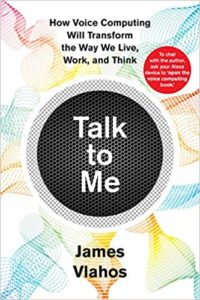
[For more on voice, check out Talk to Me: How Voice Computing will Transform the Way We Live, Work and Think by James Vlahos which goes into this in more detail.]
So I now need magnifying glasses (reading glasses) for close distance and many people as they get older, their eyesight goes. So using voice is a really good way of using search when you can’t see your phone or a laptop.
Also with dementia sufferers, they are really brilliant because you can ask what the time or the day or whatever over and over again and they don’t get annoyed. So lots of different things.
But in terms of selling audiobooks, I’m looking at building Alexa skill.
So, obviously you can control things on the app and whatever, but it really is a kind of one-touch, like the Amazon one touch, in voice form. So what I want people to think is we’re introverts. So often we don’t like speaking to technology.
I really think this is a big thing that authors don’t naturally use voice and why so many people struggle with dictation. But the truth is this is, this is a way that more and more people are searching the web. And if you think about translation, a lot of people don’t write in a language that they want to listen to.
Orna: Absolutely. I think what was interesting in the last 10 years, we saw a switch to the written word, you know, in social media, texting your friends rather than calling, you know, phone call, that kind of thing.
And it looked like the written word might be in the ascendance. But now I think what’s happening with audio is that people who are, we love the written word, as authors, we write, that’s what we do.
But most people don’t like writing. Most people much prefer to speak.
And so it will be meeting them in the speaking zone in order to tempt them across to the written word or the audiobook to our content in whatever shape or form.
Joanna: But the time for creators is even bigger. And this is a really important thing to say is that when you look at all the list of all the jobs that will change or disappear, the one that doesn’t go away is being more creative.
So if you even look at streaming TV, so Netflix is a great example of an AI-powered business. We’ve got Disney about to launch their own streaming, we’ve got Apple, we’ve got all of these different mediums that need more content and a lot of that starts with written. So it might be a book, it might be a screenplay, it might just be a pitch.
Audio dramas are booming. If you can write for audio first, and this is a really interesting topic that I’m really getting into, writing for audio is a growth market. Absolutely.
Don’t just consider that the only thing for your book is this printed or ebook format. What if I wrote this idea as an audio drama, how can we think about this new world of stories and information and all of this type of stuff?
So it’s very, very exciting.
Orna: It’s super exciting and we will be, it’s one of the things we’re going to be looking at very closely at Digital Book World and of course Bradley Metrock, who we both know and have interviewed, is very into this whole concept of #voicefirst. And it’s worthwhile.
You may not decide to do it, but it’s definitely worthwhile as an author thinking about voice first, be it as a way of dictating your book, rather than slaving over a hot typewriter or whatever it might be, typewriter’s showing my age, but laptop, you know what I’m trying to say.
AI Compositions
Okay, quickly moving on to our last question. I wanted to talk about the possible use and again, I completely get that it’s really, really new for the possible uses of this natural language generation.
And how might we be able to use that to make our lives easier? I mean, we all want to write more books more often, produce more books, more often, sell our books more widely. Are there ways in which it might be able to help us to do that?
Joanna: Well for one, it’s such a big question full of landmines with what people believe.
So, let’s acknowledge that AI can be creative, as in it has composed music. The game of Go, when Alpha Go beat Lee Sodol, which was a kind of seminal moment in 2016 it was a creative move that no human has come up with in years of human history that transformed the whole of China’s education system, was a creative move.
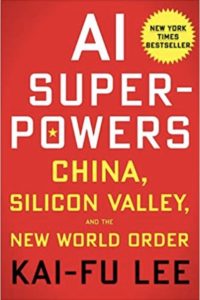
[For more on this, read AI Superpowers by Kai-fu Lee]
So I absolutely believe it can be creative. And let’s face it, all creativity is input and output. We grow up, we aren’t born able to write, right?
We’re able to come up with a novel or we learn these things and by reading, we input stuff into our brain and our output is our typing or the thing we create. So GPT2, and it was built by OpenAI, which has not released the full version because they consider it to be dangerous for making something like fake news. [The Guardian]
There’s a site called TalkToTransformer.com, I really urge people to go and have a look at that because it’s a very tiny snippet and there are a few books coming out this year that are going to get more into this.
But essentially it’s all about the data you train an AI on. Think about a niche. So that’s why I talk about reading in the whole of The Creative Penn, that may be enough data for it to generate something that sounds like my voice. Now the question then is how ethical is that? Are those my words? The whole plagiarism thing. And also what’s to stop you, Orna Ross, from reading in The Creative Penn?
Orna: I would do that!
Joanna: Totally and generating an article that you then post on your website and we’re in the same niche, so you post on the ALLi website crediting yourself. To me, there again, it’s a double-edged sword.
I would love, love, love, love to read in the works of Stephen King, Dan Brown, John Connelly, Jonathan Maberry, some of my own work into the AI and have it generate something that is a first draft that is then a percentage of everybody’s work. That would be a really good book and maybe I gave it some prompts to come up with a work.
But the question there is who, who owns that book? No one’s going to know, like plagiarism. We’ve heard of some people who have been caught, but there are a lot of people who have not been caught plagiarizing. It’s a double-edged sword. I would love to use a tool that will help me write the first draft. There’s no law against this right now, but I would ethically think that Stephen King deserves some money. So does Dan Brown and the other authors.
These things are not available now, but as we’ve seen with some of the deep fake videos, this technology is at some point going to be out there.
Orna: It’s a really interesting question because if you return to the idea that copyright is in the expression, if you’re feeding in this stuff, it will be like the translation, say, 70% there in the sense but really the artistry and the creativity comes in the 30% doesn’t it?
I’m being slightly devil’s advocate and a bit provocative here, but is it that different from Shakespeare taking plots and then, you know, making them Shakespeare’s? He took stories that everybody knew and picked up work right left and center. By the time he was finished with it, that 30% he added made it a completely different thing. We don’t remember the works that he-
Joanna: The originals.
Orna: At all, it’s his works that are here because of the artistry that he brought in.
If you pump in what is essentially a load of words, ideas and plot sequences, nobody owns words, ideas or plot sequences. People only own the expression.
I mean, I wouldn’t like to be a copyright lawyer, or maybe I would, that’d be gainful employment and it’d be interesting. But trying to parse out those different dimensions, I think, is quite challenging.
Joanna: And could you even prove it? I mean, if you read my novels, you’re going to find elements of all those authors in my novels.
And I mean, you and I both write nonfiction. How many original things can you say about like how to market a book or author mindset, all these things and all our books have quotes from other authors who influence us.
This is where maybe blockchain might come in, maybe there’ll be an engine where I could license those works and feed them in a bit like Deep Zen licensing voices when they could very easily just steal it and change a decibel and you know, so those of us who want to do things in an ethical way, these are the types of things we can shape.
This is the first time in years I have considered a job because part of me really wants to go and work with a big publisher with a big backlist and where they own the IP and then you could go, “All right, let’s read in eight 18,000 crime novels or 18 million,” however much it is and see what comes out.
I mean that’s fascinating.
This is also another issue. So the quality of the output depends on the quality of the input. No surprise. And what we’re getting is a lot of the people who are playing with GPT2, the only training data they have is out of copyright works, which as we know are mostly written by white men of middle-class or upper-class means because they were the only people generally able to write and publish.
So this to me is dangerous because one of the biggest issues in AI is diversity. It’s also a big problem in publishing. So I want us to read in books by writers of color, women, everybody, all the different people who are not just books by white men out of copyright.
In order to do that, we will have to change the copyright laws so it’s acceptable. This is a minefield of really interesting stuff.
Orna: It really is.
Joanna: We need to protect ourselves in order to continue to make revenue, but not protect ourselves so much and this is where some of these rules are wrong or bad.
I want to license my work, I want to license my voice, I want to get paid. But I also want my work to be out there. So if you want to license my voice to narrate your book, go ahead. If you want my back list to feed into your AI, I’d like to be paid for that. But go ahead. Do you see what I mean?
Remember fundamentals
Orna: I totally do. And I think we are going to have to wrap it up there and we could go on and on. But, it’s so, so interesting. I think the important thing to say is that it will always come back to the fundamentals.
You know, new technology always comes along, but it will, if we think about what are the fundamentals that people want from us, as authors and what are the things that we can do and bring to our own expression of the ideas and so on. We shouldn’t go too far on because the thing is you can get so interested in all the different ramifications and all the different aspects of it, I think if we keep coming back to that question of “Is there anything useful this could do for me right now?”
And we keep having the discussion and keep having the debate and the talks about it. Anyway, thank you so much for, I’m absolutely, I’ve been so excited about this particular show for ages and I learned loads and I’m certain that everybody listening has. There are a few books I asked you to kind of recommend things that aren’t too geeky that are particularly relevant for authors. So just to finish off, if you could read that list for us and all of this, folks, will be in the show notes as well as the website addresses for the various companies that Joanna has cited already.
Joanna: Well, I should mention that I did a whole podcast episode just me on my own talking in a lot more detail about the 9 Ways that Artificial Intelligence Will Disrupt Authors and the Publishing Industry.
Also given that everyone’s listening to podcasts, Sleepwalkers podcast, there are only 10 episodes, incredibly highly produced and will give you a really interesting look into the wider ramifications and what’s going on. And that’s what blew my mind. I went, “Oh my goodness, I did not realize we were this far.” So that’s a great podcast. Wired magazine online or the actual magazine and if you like physical, like I actually subscribe to the physical one cause I like to have it and see it. And their issue just came through my doors on DeepMind, which is a British company that is owned by Google that is at the forefront of these things.
Joanna: Then the two books I would recommend AI Superpowers by Kai-Fu Lee, which again, I think we don’t read enough about the amazing stuff going on in China. I think, again, the news and especially stuff with Trump and politics, it spins China in a certain way, but AI Superpowers, really fascinating about what’s going on in China. And then finally, Homo Deus by Yuval Noah Harari. If you haven’t read Harari, his book Sapiens has won all the prizes. I believe he is one of the greatest thinkers of our generation. I read every word the man writes and this book, Homo Deus is really about questioning our role in a future where we could, you know, what if you pay to upgrade your children and the person next door doesn’t, what does that mean for our species? So it’s a much wider ramification. Those are some of the books and we’ll link to them in the show notes as well.
Orna: Fantastic, Jo, thank you so much. And stay tuned to The Creative Penn podcast for more and more and more on this topic and all of the good ones relate to self-publishing. Thanks and we’ll see you next month folks for audio, we’re going to talk about audio.
Joanna: Yes, we can say what’s happening in the next month. I’m going to Podcast Movement in America. So I’m going to bring back some lessons learned because podcasting is now a huge industry.
Orna: Absolutely. And we’re going to talk about it in relation to marketing audiobooks in particular, because, by then, audiobooks will be selling $1 billion worth value in the US alone. So, you know, sometimes we think of audiobooks still as niche, we know they’re growing like crazy. This is not a small thing. This is a big thing. It’s still growing like crazy. So, we’ll be talking about that next time and do send us your questions and comments and we will get to those also. So thank you again.
Joanna: Happy writing, happy publishing.
 As an international bestselling author (of The Art of Unlearning: Top Experts Share Personal Stories on the Courage to Step Out of Your Comfort Zone), Nina Dafe mentors heart-centered, visionary Christian women who want to banish the blocks keeping them from crushing their business goals once and for all.
As an international bestselling author (of The Art of Unlearning: Top Experts Share Personal Stories on the Courage to Step Out of Your Comfort Zone), Nina Dafe mentors heart-centered, visionary Christian women who want to banish the blocks keeping them from crushing their business goals once and for all.
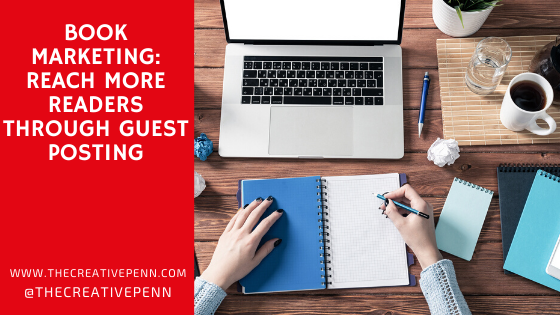
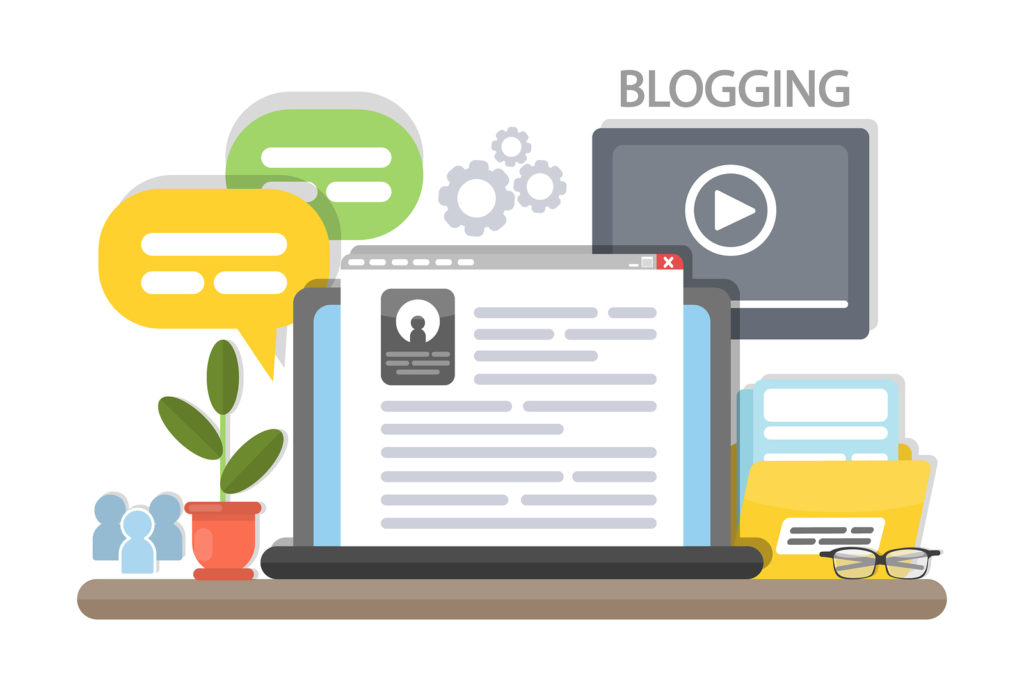


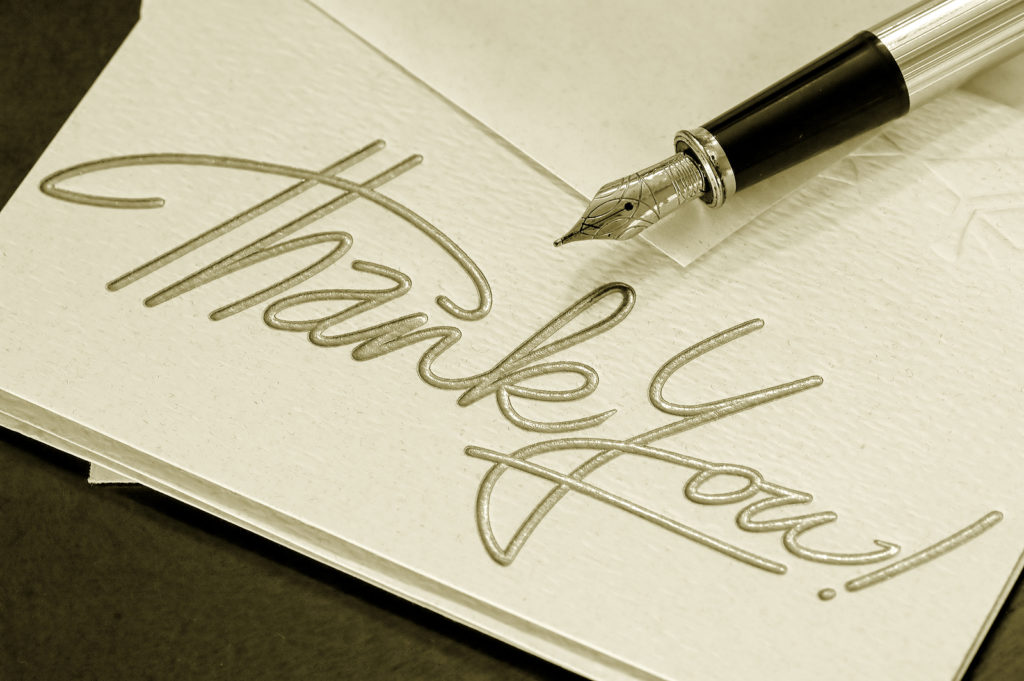
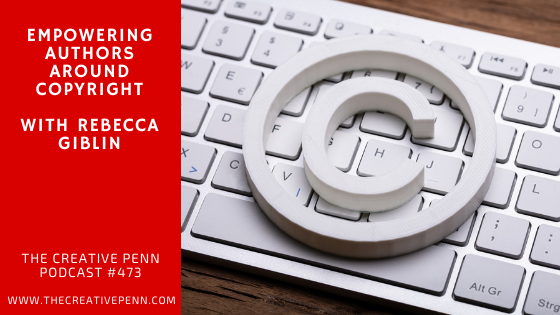
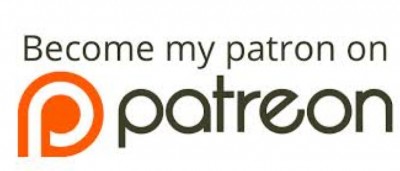

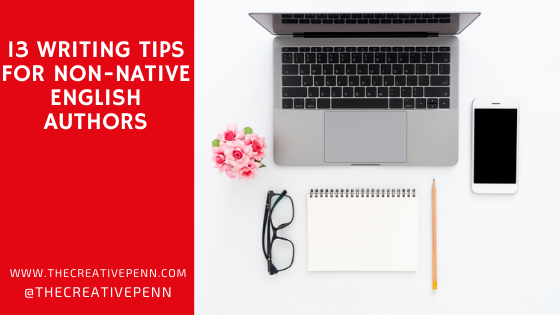

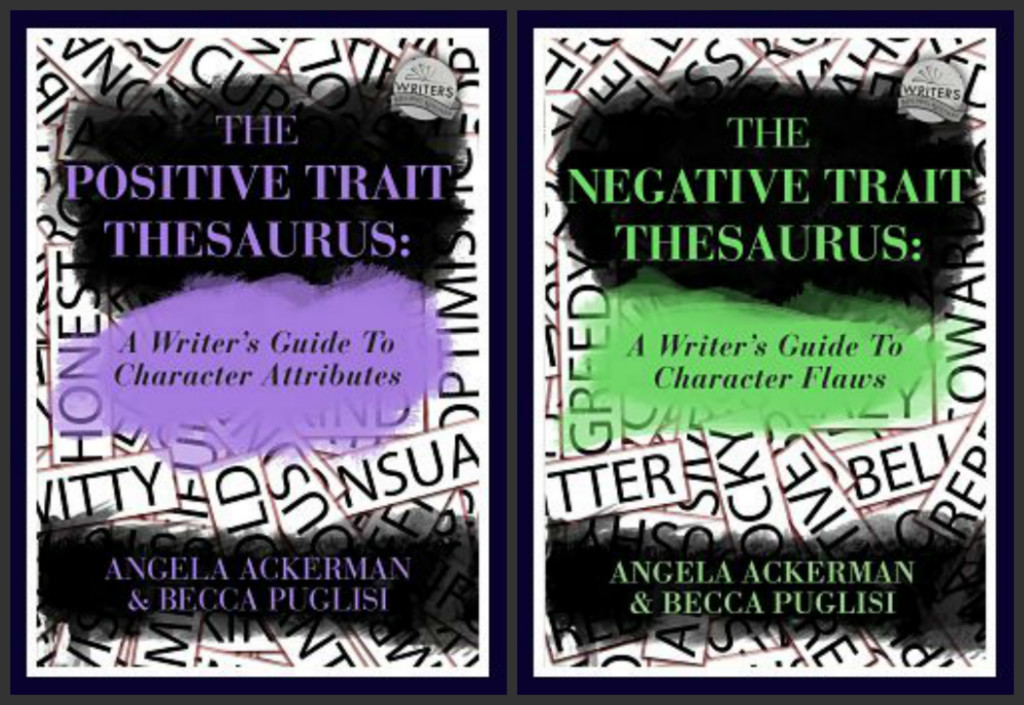
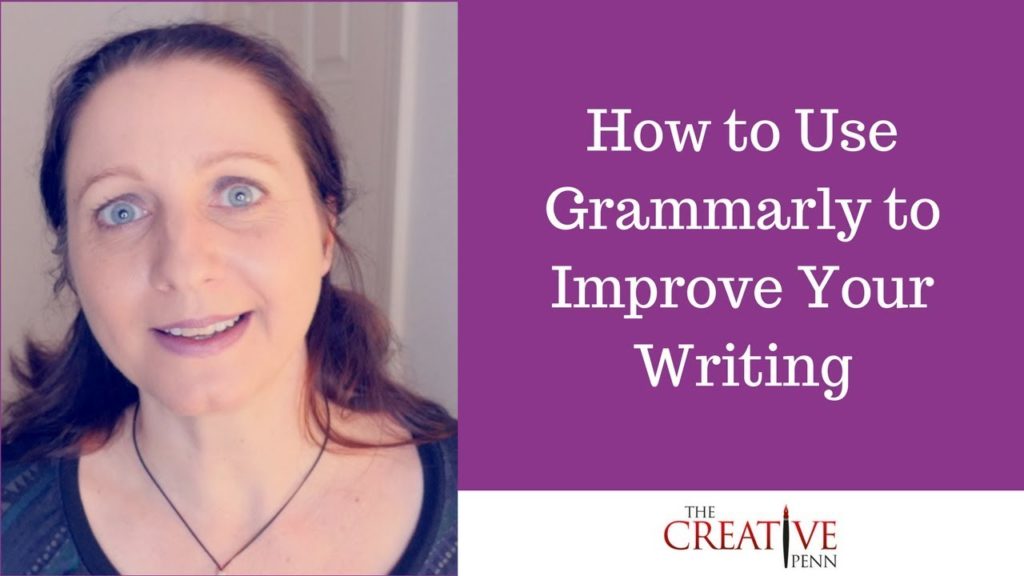

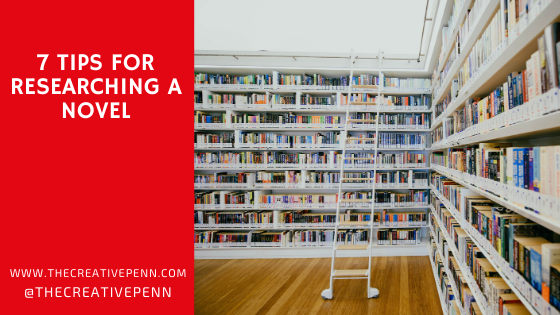

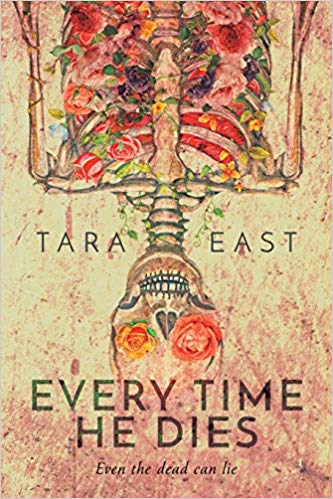



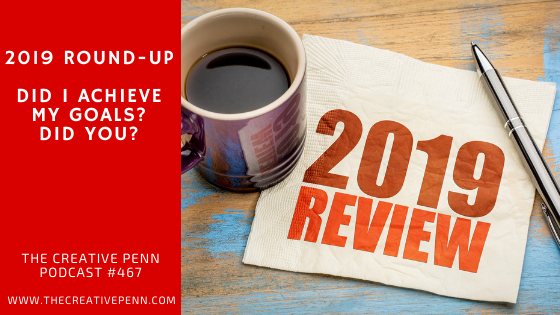
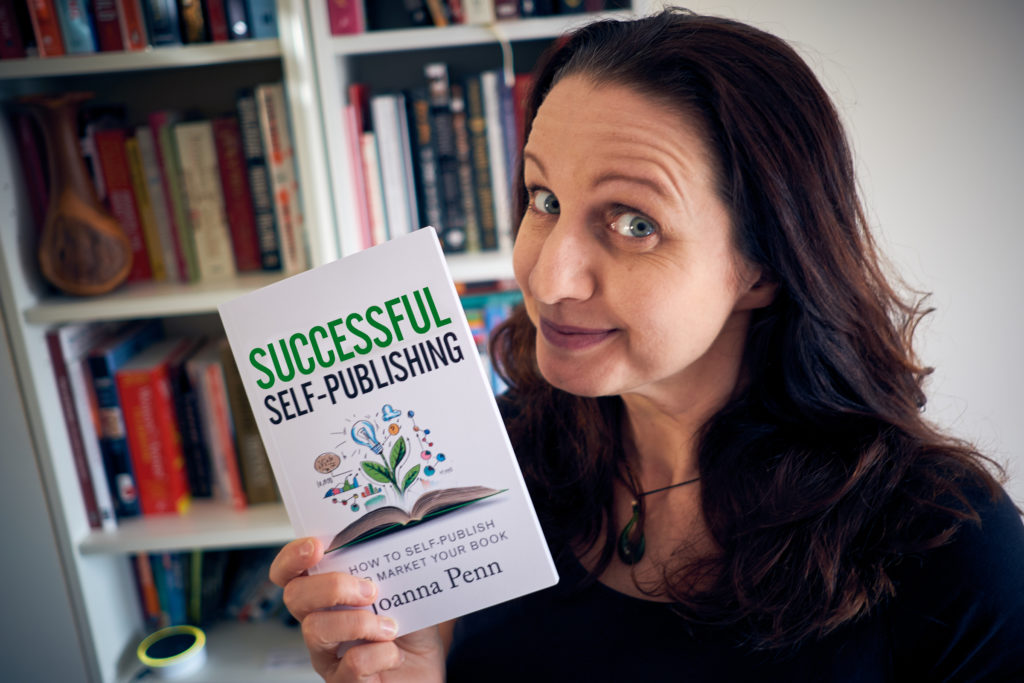
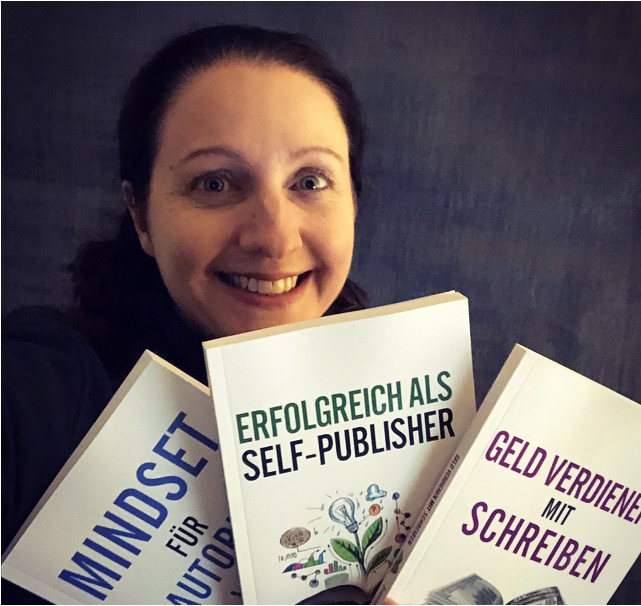
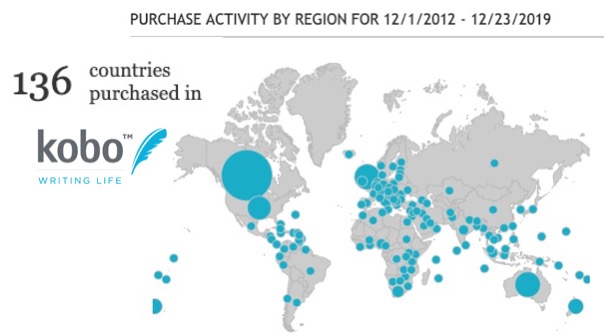
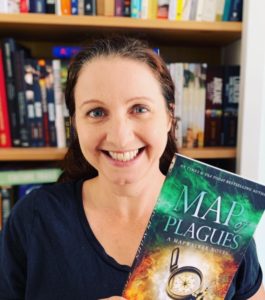
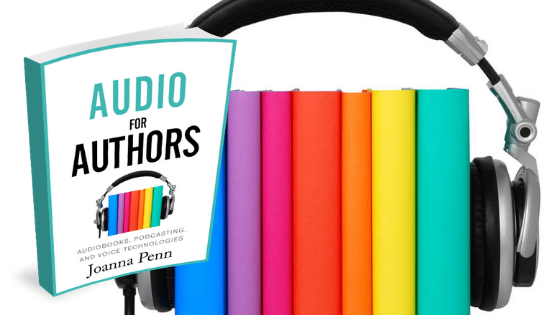
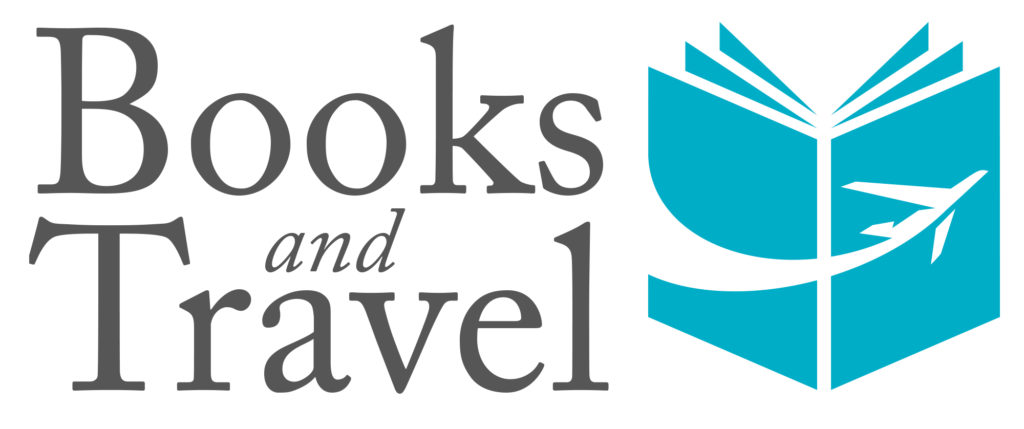
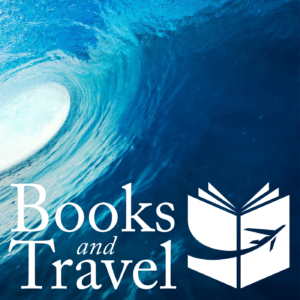






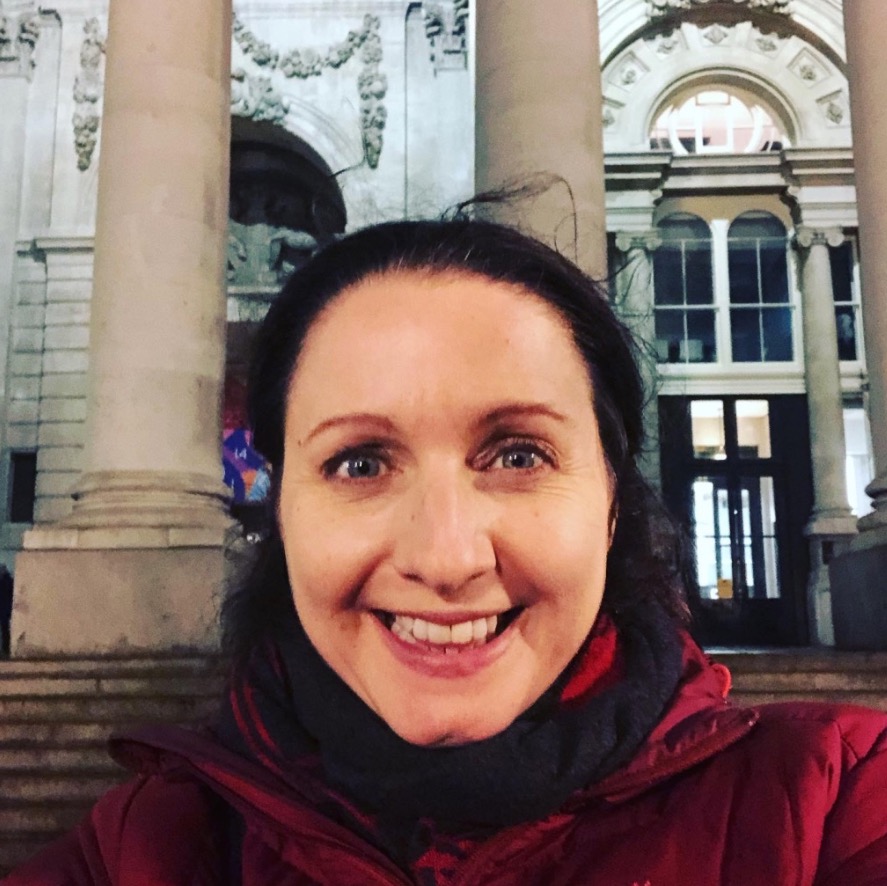
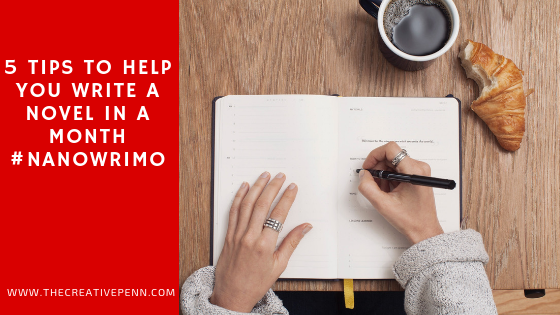
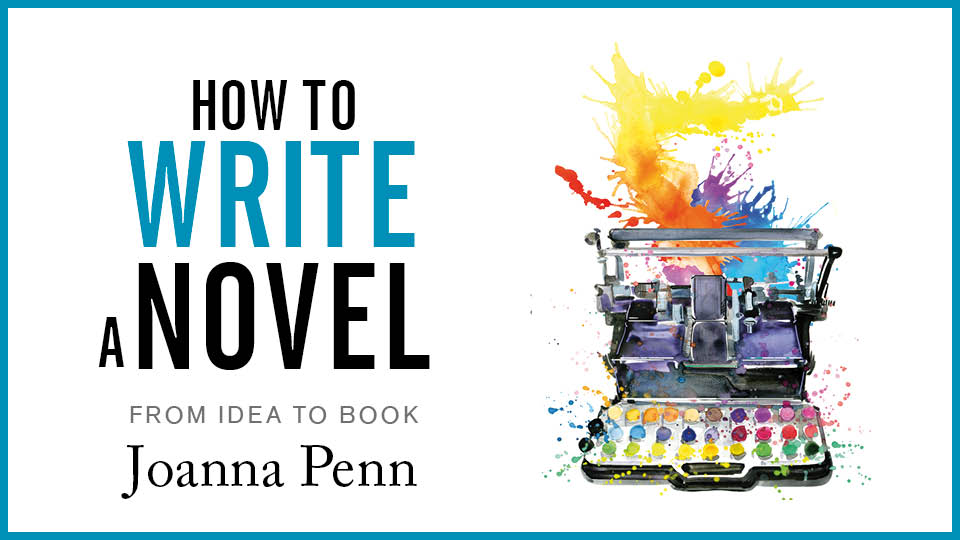
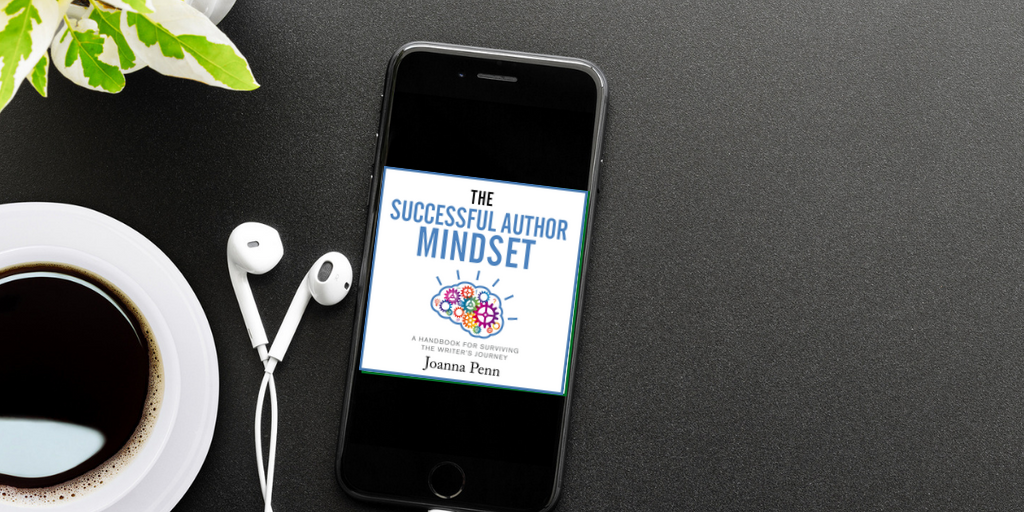
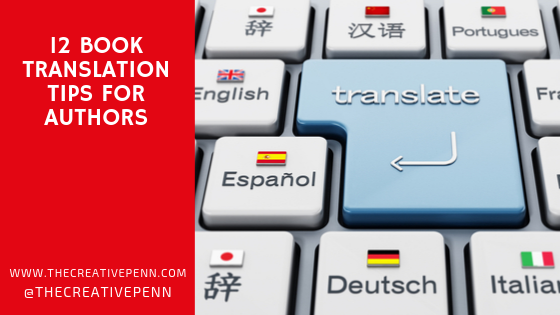




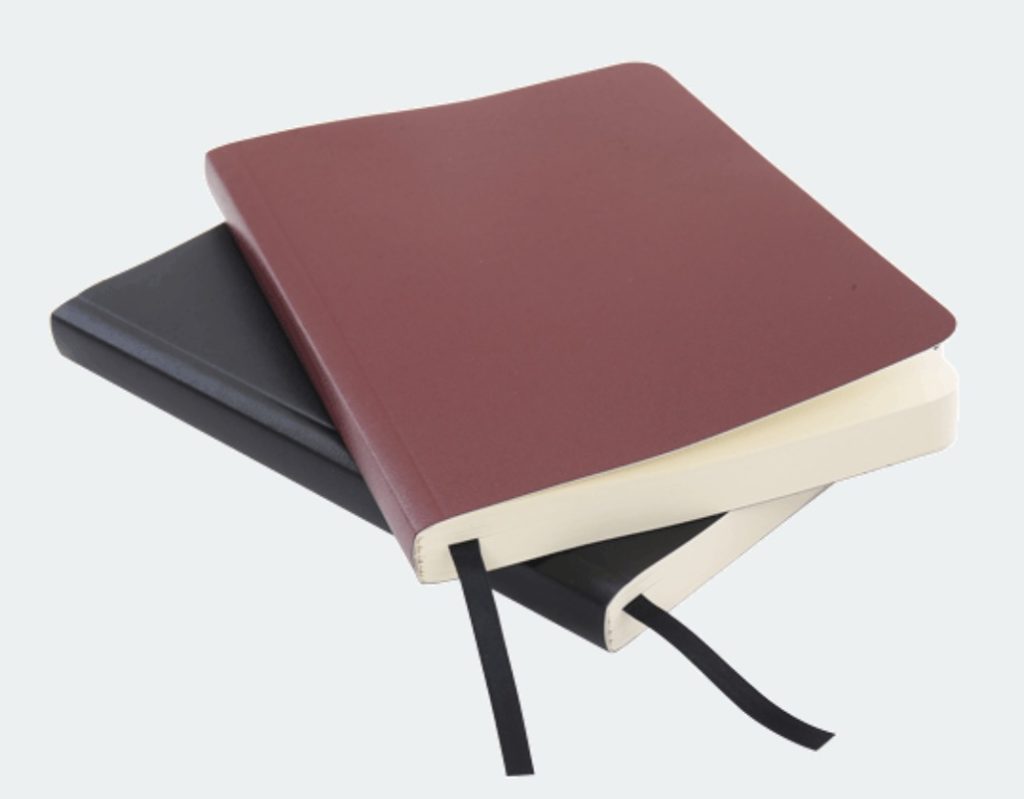
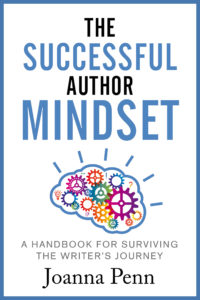



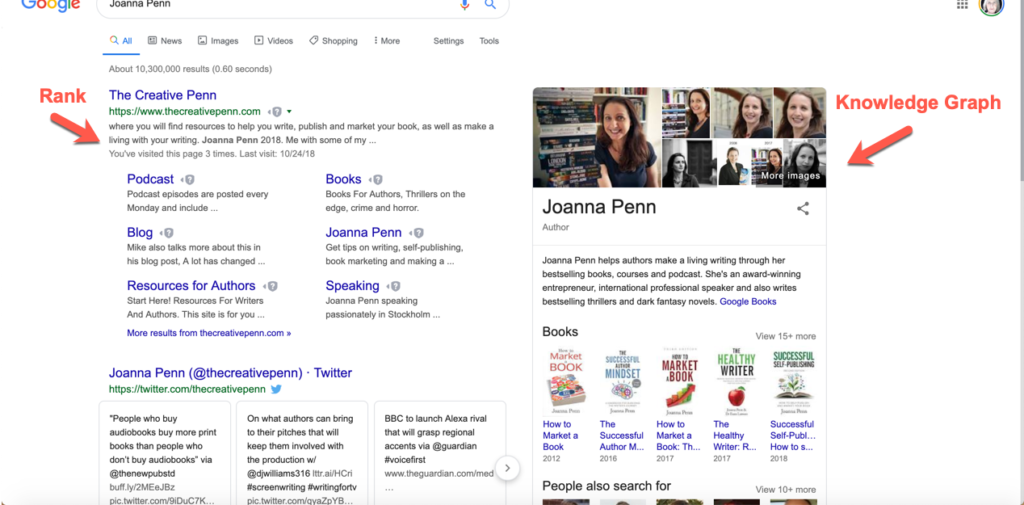



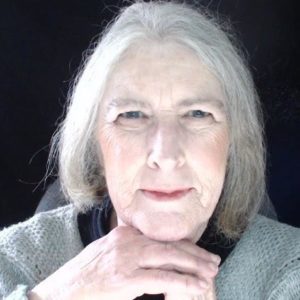
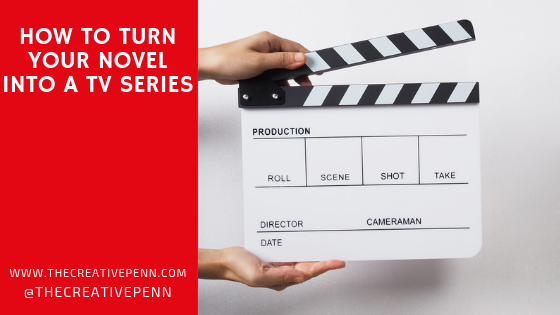









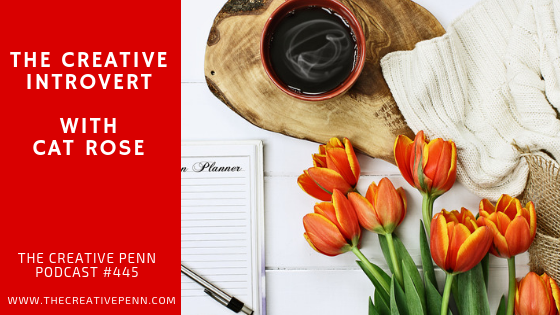 In the intro, I talk about the importance of thinking long-term, both about your creative projects, but also about building assets and making sure your writing is not just about short-term cash flow.
In the intro, I talk about the importance of thinking long-term, both about your creative projects, but also about building assets and making sure your writing is not just about short-term cash flow.
